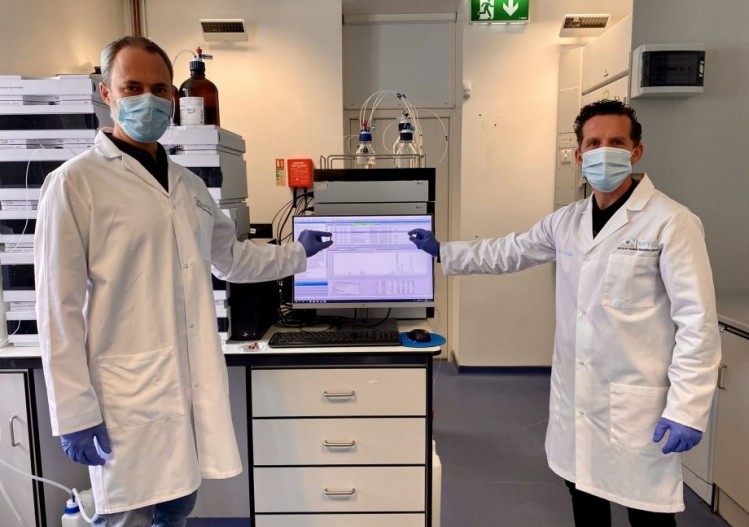'Supplement Certified' created to enforce carotenoid and omega-3 quality control

The programme has been spearheaded by Dr Alfonso Prado-Cabrero and Professor John Nolan, who is also founder of WIT's Nutrition Research Centre Ireland - a multidisciplinary group studying the role of nutrition and lifestyle for human well-being.
The scientists and researchers at ‘Supplement Certified’ hold over 20 years of academic credibility in the area of assessing nutrition for human function, having built up a unique skillset at the Nutrition Research Centre.
Yet to be published research carried out by the team on commercially available nutritional health supplements has found that up to 65% do not match their label claim.
Professor Nolan says: “Our mission is to help consumers have positive outcomes by supporting nutraceutical companies that produce supplements aimed at enhancing human function. A basic requirement for this is that the claimed active ingredients are actually present in the supplements, which are sold and promoted for eye and brain health. The more products we analyse, the more astonishing the findings.
"Our independent analysis of products and the opportunity to apply a ‘Supplement Certified’ stamp of approval to a product will not only offer consumers peace of mind but also those nutraceutical companies who are working hard to ensure that their products are fit for purpose.”
The team recognise that there has been exponential growth in consumer demand for nutritional supplements over the last decade and that the industry is not officially regulated worldwide when it comes to verifying product label claims. They want to provide the producers and distributors of carotenoid or omega-3 fatty acid products with an independent certificate proving that the product lives up to its label claim.
The services provided by Supplement Certified include the provision of access to global thought leaders in the area of nutritional science research and testing. The stages of the process available to nutritional health companies include extensive scientific research performing a delicate process of extraction, separation of components, analysis and testing of active ingredients, reporting and if determined suitable, the certification of nutritional health products for carotenoids and omega-3 fatty acids label claim.
By becoming a member, producers will be able to have all their lot supplement products tested for label claim, including stability analysis over time to confirm shelf life.
Speaking about the service Dr Prado-Cabrero said “It is very satisfying to see how our expertise in the analysis of carotenoids and omega-3 fatty acids helps distributors formulate their products and, above all, will ensure that consumers really get what the label says.”
Prof Nolan adds: “Our published research has already highlighted the issues surrounding commercially available supplements, and also the importance of recommending a supplement that has been independently scientifically tested in terms of efficacy and in terms of meeting its label claim.
"Supplement Certified is also established to assess the stability of the product over time and will work with companies to provide advice on how to meet standards and label claims, if products do fail following the detailed scientific testing.”
Prof Nolan says carotenoids are particularly easily oxidised, making third-party verification all the more important in this market.
He explains that the reason for the commonality of discrepancies between labelled contents and actual contents is that companies will usually obtain a COA (certificate of authenticity) from the raw material producer which may, or may not, be accurate depending on the capacity of the company providing the COA and doing the testing.
"Next, the materials are sent to an encapsulator. This will involve dilutions and calculations to achieve a label claim, with significant risk for error," he explains. "I have now seen this first hand. Even with best efforts here there are no regulatory enforcements to test the tablets or capsules produced. The label is put on the product and sold (but with no checking).
"Another reason for discrepancies relates to formulation. Are the active ingredients protected from oxidation? In one product we tested, we see degradation of circa 85% in just 4 months to a point that the active ingredients (carotenoids) were almost zero (i.e. no active ingredient). Hence the requirement to prove shelf life stability. Again, no one enforces this. There are ways to achieve stability."
He says the team will expand into other categories of supplements in the future but for now they "have a lot to do" with carotenoids and omega-3.















